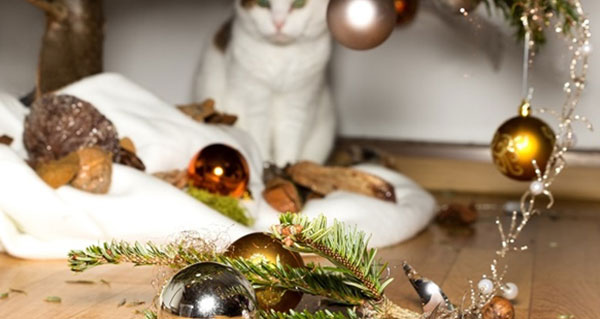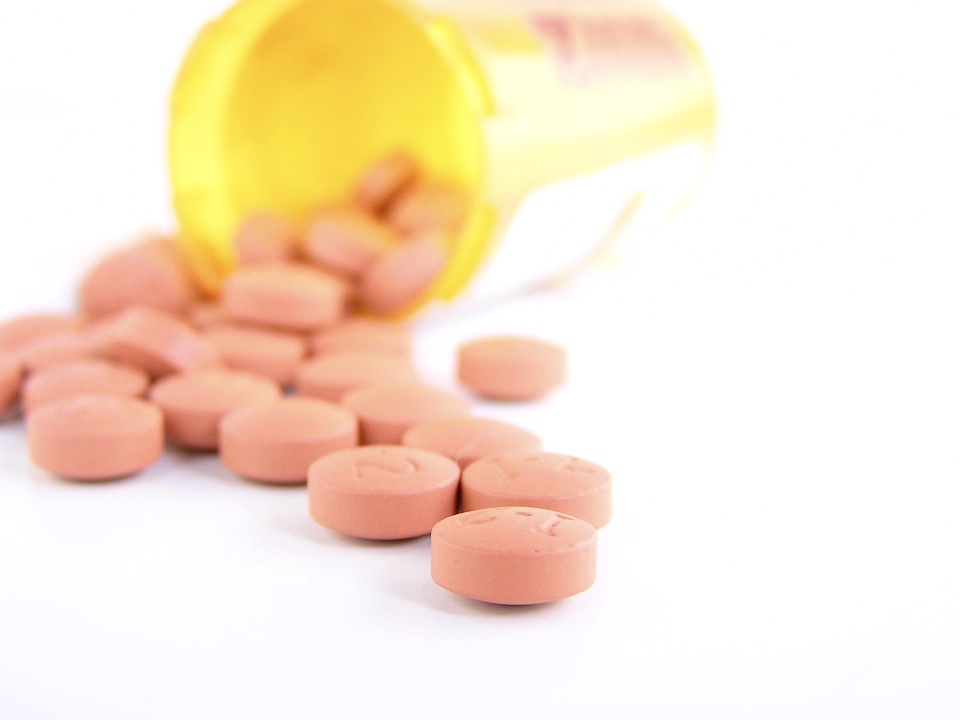1. Food
Just the thought of the delicious food to be indulged in is enough to make your mouth water. When it comes into our homes, the smell may give your pet the desire to find it and eat it – the number 1 rule is never leave food unattended or in paws’ reach and definitely no table scraps. Inform visitors that come in to your home they are not to feed your pet any food from the Christmas feast. Some foods such as bones, nuts, grapes, raisins, sultanas, fatty foods and chocolate have the potential to make your pet ill.
2. Christmas tree-
These sparkling beauties can pose a risk to pets- some animals, especially cats, are drawn to the shimmery sway of tinsel, decorations and lights. Pets can climb trees, knock them over, chew decorations and lights which could lead to injury, electrocution or a gastrointestinal blockage! Pine needles can cause nasty injuries to paws if they penetrate the skin.
3. Presents-
Never place wrapped foods under the tree such as chocolate and nuts. Our furry friends have the most incredible sense of smell and will find that delicious smell and eat it- wrapping paper, packaging and all! They pose a toxic or choking hazard together with the risk of an intestinal blockage.
4. Ticks-
We are at the height of paralysis tick threat during the warmer months- up to date prevention plus daily tick searches are an absolute must for your pet. Click here to read more about paralysis ticks. For top tips on how to prevent paralysis ticks click here.
5. Fleas-
Are also at their peak in the warmer months- keep that seemingly impossible to break cycle broken for good- up to date flea treatment for every animal in the household plus regular vacuuming and washing of anything in their environment are all part of a good flea prevention program. Read all about fleas and how to prevent them.
6. Heat stroke-
Always be aware of the weather conditions- check your pets at least daily and if you need to check hourly in extreme conditions. Ensure you are totally prepared for what the day has in store for your pet and the environment in which they are in. Provide your pet with plenty of access to shade, cool fresh water and keep them indoors when it’s too hot for them to stay outdoors. Your animals ability to cope on extremely hot days is dependant on many factors including breed, age, coat, weight and health status.
7. Alcohol-
Is dangerous for pets- keep cups, bottles and cans out of reach of animals and never leave alcohol unattended. Alcohol ingestion by animals can be fatal.
8. Trading hours-
Opening hours of most veterinary hospitals change throughout the Christmas and New Year period. Call your regular vet, write down their trading hours and ask details of where to go in case of emergency.
9. Fire works-
If you have a pet that is fearful of fireworks call your local council and ask what fireworks will be happening in your area- this way you can have an action plan in place for your pet so they feel safe and secure and don’t feel the need to flee their home or injure themselves in the chaos of the event. Make sure your pet’s microchip number is up to date and they have a collar with a name tag with phone number.
10. Thunderstorms-
These are unpredictable, plentiful and fierce at this time of year not to mention incredibly distressing for some pets- make sure your yard is secure and your pet has a collar with their name and your contact number and ensure their microchip details are up to date. Have a friend check in or sit with your pet if you are unable to be home. There are many ways we can help a pet with thunderstorm and firework phobia, some of these are desensitisation, comforting aids and in some cases a trip to the vet so they can see whether medication may be needed to help ease them through the storm. Speak to a trained professional for the best advice to help your pet cope. Ideally start to develop your thunderstorm management plan well before storm season.
11. Vaccinations-
Many pets go into boarding facilities while their family takes a much needed vacation. It is usually a requirement that all animals boarding are current with their vaccinations. Check your pets’ vaccinations and prepare well in advance of the proposed vacation. We are often the outdoors with our pets around this time of year with potential exposure to other cats and dogs- another important reason to make sure their vaccinations are up to date.
Read more about puppy vaccinations or kitten vaccinations
12. Prescription medication and diets-
Where possible order plenty to get you through the Christmas period. Many veterinary hospitals have altered trading hours and freight companies and suppliers may close down over the Christmas period- don’t get caught short.
If you have any questions please phone us on (02) 4362 1644





